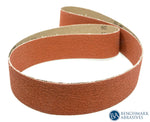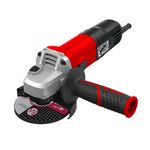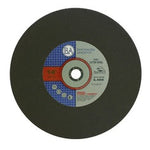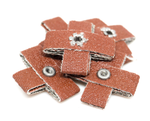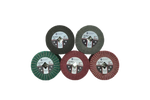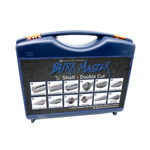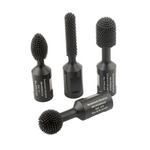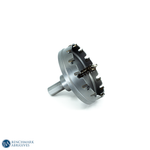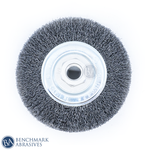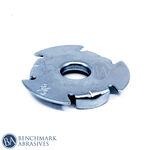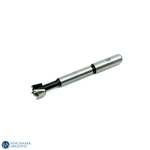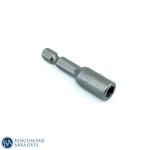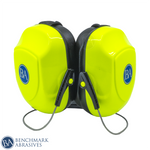
Choosing Between Carbide and Diamond Bits

The kind of burr used in drilling can have a significant impact on the success of your project. There are plenty to choose from, but the one that best suits your demands must adhere to stringent project specifications. Think about the different kinds of burrs that are out there. For instance, carbide and diamond are two of the most widely used drill burrs.
Understanding these distinctions is essential to getting the greatest project outcomes. Each has special benefits and uses. Additionally, you can discover the distinction between carbide and diamond burrs without any prior experience.
Carbide Bits
Carbide bits are made up of hard material called tungsten carbide. Carbide bits are generally used for drilling holes in hard materials like steel, cast iron, metal, concrete, and more. Additionally, they are an affordable option without sacrificing quality. These burrs, however, don't last very long and deteriorate over time, particularly when used frequently.
Benefits Of Carbide Bits
Following are some features or benefits of carbide bits:
-
Versatility: carbide drill bits are designed for general-purpose operations like drilling holes in wood, plastic, metal, etc. These bits can be used in various applications and materials due to their adaptability.
-
Simple to use: carbide bits are simple to operate. Unlike diamond bits, they are quicker to maintain.
-
Affordable: carbide drill bits are more economical than diamond bits. Therefore, it can be preferred by many woodworkers. Also, woodworking is a sector where you require frequent replacement of bits. Hence, carbide bits are perfect.
-
Durability: carbide drill bits are highly durable if you use them according to their parameters. Beyond that, their lifespan is reduced. Also, carbide bits can be sharpened with standard bits, increasing their lifespan for some time.
Drawbacks Of Carbide Bits
-
Not ideal for fine work: For complicated and fine-grained tasks, carbide bits are not the best option. They generate more chipping during the process, which results in rough edges or an unclean finish making them unsuitable for precise work.
-
Restricted Use with Hard Materials: Carbide bits can drill through softer materials. They cannot drill through tough materials like glass or concrete slabs, which makes their use limited. Drilling through these materials may cause the bit to become excessively worn and dulled.
-
Decreased Heat Resistance: Carbide bits may require regular cooling over time as they become hot and prone to breakage.
Diamond Bits
When it comes to precision, diamond tools outperform carbide tools. Because of their remarkable longevity and hardness, diamond core bits are frequently considered the best drilling tool available. Diamond core bits cut through hard materials like concrete, stone, glass, and even metals by using artificial diamonds contained in the bit's matrix, as opposed to conventional drill bits that employ abrasion and friction to remove material.
Benefits Of Diamond Bits
-
Versatility: Diamond bits can be used to cut a variety of materials, such as concrete slabs, glass, tile, and ceramics.
-
Durability: Diamond bits are highly durable compared to carbide bits. These bits can easily drill holes into thick concrete slabs, glass, and tiles. Because of their toughness, they are preferred in the long run.
-
Outstanding Hardness: Diamonds are widely recognized as the hardest natural substance. This hardness is used by diamond core bits to cut through hard surfaces easily. They are perfect for continual drilling since they hold their edge for extended periods.
-
Heat Resistance: Diamond bits are capable of dissipating heat generated due to friction. As they are made from tougher materials, they have the potential to keep them cool during operation, making them durable and robust.
-
Accuracy: Diamond bits are perfect for fine and intricate jobs. It produces accurate holes with minimal chipping.
-
Enhanced safety: Diamond blades often produce fewer vibrations during the drilling process, which makes it easier to handle. Also, diamond blades generate less dust and allow clean and safe working space.
Drawbacks Of Diamond Bits
-
Frequent Maintenance: To guarantee the longevity of diamond bits, proper maintenance is essential. They need to be cleaned and sharpened on a regular basis, which raises operating expenses.
-
Expensive: Because synthetic diamonds are costly and require a complicated production process, diamond bits are usually more expensive than their carbide counterparts.
-
Not ideal for softer materials: When drilling into softer materials, such as plastic, diamond bits are not appropriate. They tend to clog or damage quickly.
Carbide Bits Vs. Diamond Bits: What To Choose
The final decision between carbide drill bits and diamond bits is based on the particular needs of your cutting or drilling task.
|
Key Features |
Carbide Bits |
Diamond Bits |
|
Composition |
Tungsten carbide |
Diamond particles |
|
Usage |
Drill softer materials like metal, wood, and plastic. |
Drilling through harder materials like glass, ceramics, tile, concrete, etc. |
|
Accuracy |
Accurate but slightly rough edges |
Perfectly clean and precise finish |
|
Durability |
Durables but not more than diamond bits |
Highly durable |
|
Cost |
Affordable |
Expensive |
|
Maintenance |
Low maintenance |
High maintenance |
CONCLUSION
There are specific benefits and uses for both carbide and diamond drill bits. Carbide drill bits are superior in price and adaptability, while diamond bits are best suited for challenging and precise tasks. Consider your budget, the resources you plan to use, and your unique needs so you can make an informed decision. Whether you need the precision of a diamond or the dependability of carbide, you can be sure you have the appropriate tool for the job.

